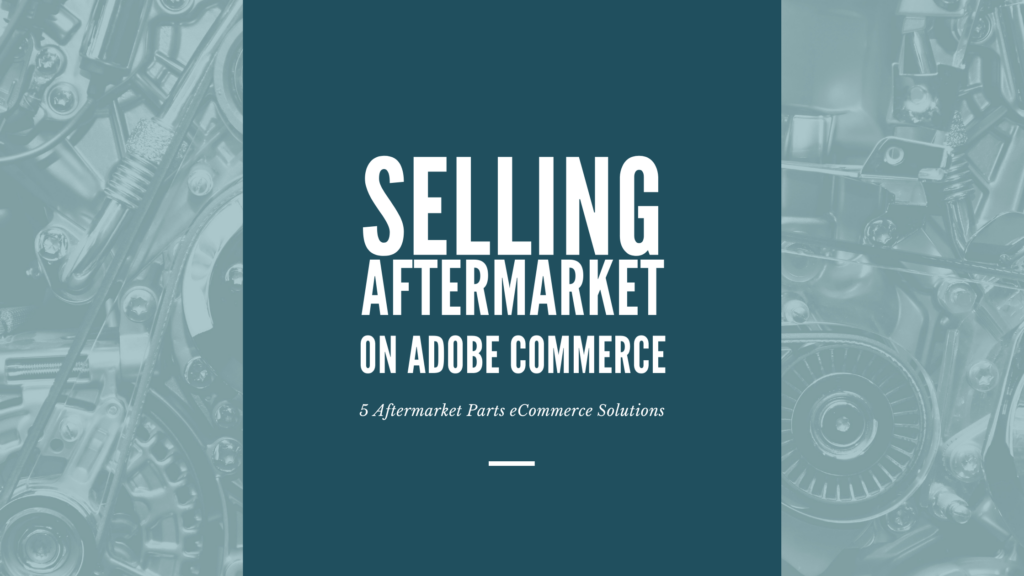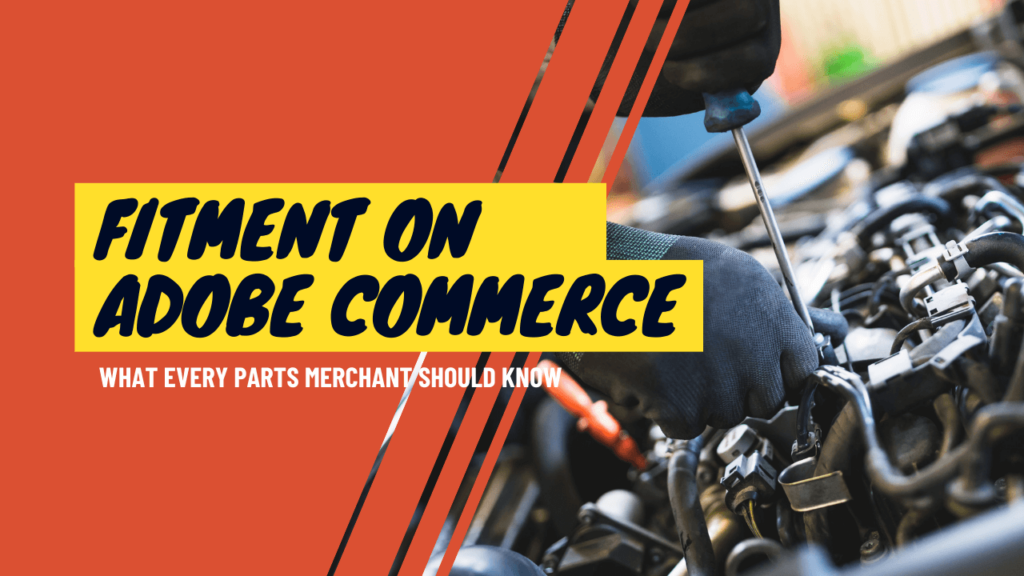Selling Aftermarket on Adobe Commerce: 5 auto parts eCommerce solutions

Selling aftermarket parts online is a unique challenge. Most parts merchants have incredibly large catalogs with many complex categories. Not only that, most customers now expect an intuitive search experience where they can enter their specific year, make, and model or even a VIN lookup to ensure they’re getting a part that fits. When thinking […]
Fitment on Adobe Commerce: Improving the parts shopping experience

When it comes to shopping for auto and manufacturing parts, fitment is the perfect fit. Fitment provides a method for shoppers to “shop by vehicle” and makes the shopping experience more streamlined by only displaying products that are compatible with the vehicle selected. Rather than clicking through categories and subcategories of products for all different […]
